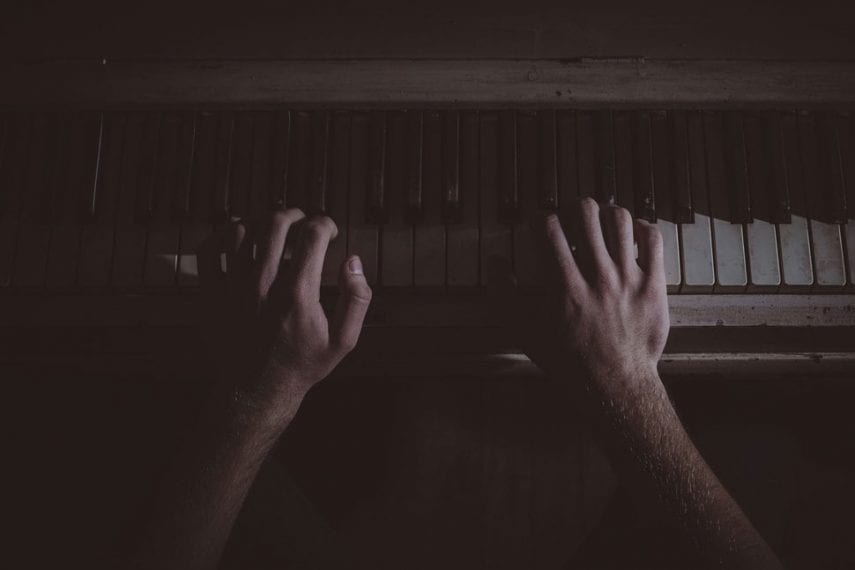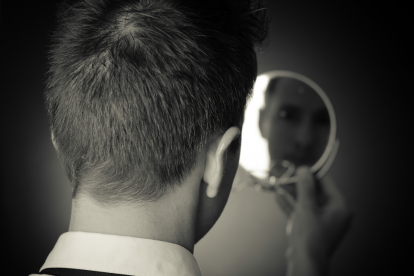When Illness Gives You Gifts: Obstacles to Treating Bipolar II

The world is beautiful and its possibilities are boundless. The sky is bluer and your house is cleaner than it’s ever been. Ideas tumble out of you, each better than the next, and you’re going to use them all. Your brain works faster and your heart is full and life is an extraordinary thing. You love the world and the world takes you in its arms and loves you back.
As quickly as bliss appeared, it vanishes. The light that shone on you goes out and you are alone in the dark. You descend into a depth whose end you cannot see and you can’t be sure exists. Your heart aches, your brain plots against you, you put your hands out to steady yourself and there is nothing there.
This is life with untreated bipolar II.
Bipolar II, the less notorious sister of Bipolar I, is characterized by the coupling of depressive and hypomanic episodes. Hypomania is a less severe manic experience that may express itself as both pleasurable periods of enhanced creativity, self-esteem, and productivity, as well as times of irritability, inability to focus, and self-destructive, impulsive behavior. However, usually hypomania does not require immediate intervention and is perceived as a pleasurable state, which adds its own destructive qualities to the illness.
Because bipolar II includes this milder form of mania and does not have the same extremity of recklessness and potential for psychosis of bipolar I, it is sometimes referred to as ‘bipolar lite.’ This phrasing does a profound disservice to those who have bipolar II, serving as an erasure and invalidation of their suffering. Minimizing the impact of the illness may cause you to blame yourself for your symptoms and avoid treatment for fear of your distress being trivialized.
7 in 10 Bipolar Cases are Misdiagnosed
Proper Diagnosis is Essential for Effective Treatment
Dangerous Duality
In fact, it is not the absence of full mania that defines bipolar II, but the duality of hypomanic and depressive states that conspire to disrupt stability and create internal obstacles to treatment. This interplay is what makes the illness so debilitating and potentially deadly.
If you have bipolar II disorder, you typically spend more time in the depressive phase of your illness and experience longer and more severe episodes of depression than people with bipolar I. These dark periods, partnered with the inherent instability of the illness, can create a perfect storm that heightens the risk of suicide. Misdiagnosis is also common, as you may seek treatment for painful depressive symptoms, not the elation of hypomania, and be assumed to have unipolar depression. Incorrect diagnosis and improper treatment can lead to aggravation of symptoms and unnecessary suffering.
But the greatest barrier to treatment can be the pleasures the illness provides. Many people are reluctant to seek treatment for fear they will miss out on the joys and flourishes of imagination hypomania can bring. This may be an especially unsettling prospect if you make your living in a creative field and have incorporated hypomania into your creative process and self-identity. There is an enduring cultural narrative about the marriage of madness and creative genius that feeds into this fear, and can leave you feeling that you have to choose between sustainable happiness and creativity, stability and amplified joy, wellness and productivity. Relief from the painful parts of illness may threaten to simultaneously strip you of the gifts you perceive yourself as receiving–and this can be experienced as a profound loss and disruption of your sense of self. However, while a link between creativity and mental illness does indeed exist, you can learn to access your talents and experience exhilaration while in successful treatment. You can tease out your self-identity from the grip of your illness and see that your abilities are part of your authentic self. Because too often the choice is not between happiness and creativity, but life and death.
Treat the Illness, Keep Yourself
Modern treatments for bipolar II can pinpoint depressive symptoms and provide stability without reducing healthy emotional expressiveness or impairing cognitive function. Through a combination of medication, psychotherapy, and holistic therapies, suffering can be relieved while maintaining high function and encouraging creative production, happiness, and ingenuity.
Medication is often at the heart of successful treatment of bipolar II, requiring a delicate balance of addressing depressive episodes while protecting against the intensification of hypomanic experiences. Simply prescribing an antidepressant usually isn’t enough, as antidepressants appear to have a different effect on bipolar versus unipolar depression, and may increase instability. Although you may be successfully treated with antidepressants alone, mood stabilizers, anticonvulsants, and atypical antipsychotics, used either as monotherapy or in combination with antidepressants tend to give the best results. In the past two decades we have seen increased awareness of the special considerations for psychotropic bipolar II and bipolar depression treatment, and the subsequent development of drugs uniquely suited to treat symptomswhile minimizing undesirable side effects.
Through psychotherapy and holistic therapies, you can begin to build a new relationship with your illness and with yourself. As you gain insight and self-awareness, you often realize that the talents and abilities you ascribed to your disorder are actually innate qualities you possess and can draw from, even as you regain psychiatric health. Therapists can also help you explore new ways to connect to authentic creativity, imagination, joy, and productivity free from the burden of illness.
The clinicians at Bridges to Recovery have the expertise and experience to help people with bipolar II disorder find relief from suffering while developing the tools to live the lives they want. Our compassionate psychiatrists create carefully tailored medication protocols with awareness of the most current research and the delicate needed for correct, well-tolerated psychotropic treatment. They will listen to you to understand your symptoms and treatment goals while finding the optimal balance that works for you. Our intensive psychodynamic individual therapy can introduce new pathways to stability while honoring the need for creative expression, helping uncover unconscious obstacles and tap into your inner resources. Together, we can work to accomplish your treatment goals and help you on the path to a more fulfilling life.
Contact us anytime to discuss the treatment options we have available. We are happy to answer any questions and give you any information about our program, to help get you on your path to recovery.






